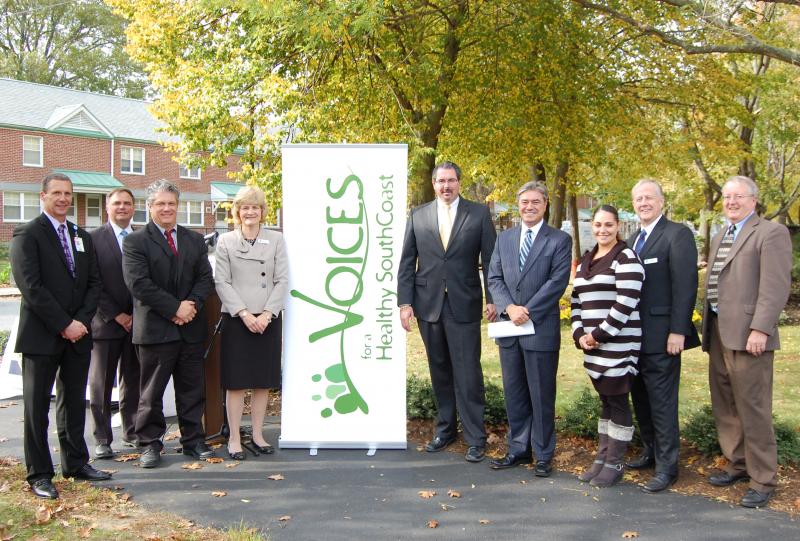Grant aims to make Wareham senior housing smoke-free

Smokers in Wareham's senior public housing will soon be asked to put out their cigarettes.
Wareham, along with New Bedford and Fall River, will be the focus of a new initiative, funded with a $1 million federal "Community Transformation" grant, aimed at eliminating smoking in multi-unit housing -- especially public housing.
The initiative will be directed by Voices for a Healthy Southcoast, a consortium of health-focused organizations spearheaded by YMCA Southcoast and SouthCoast Health Systems.
Working with Voices, the Wareham Housing Authority will seek to eliminate smoking in its two senior housing properties, Agawam Village and Redwood Park, and to introduce smoking cessation programs.
At some not-yet-determined future time, smoking will be prohibited on the properties -- but only after residents are given the opportunity to participate in smoking cessation programs.
“With smoking comes addiction, and we know that," said Nancy LaRue Bonell, vice president and chief operating officer of YMCA Southcoast and a Wareham resident. "We want to help [residents] with smoking cessation."
Wareham residents smoke at a rate above the state average, and the South Coast region has the highest rates of death from lung disease and cancer in the state.
“We see elderly and handicapped tenants at the Agawam and Redwood complexes smoking while using oxygen, not to mention the health risks of secondhand smoke,” said Pamela Sequeira, executive director of the Wareham Housing Authority. “It is my hope that this project will provide an avenue for our residents to quit. I know it will improve their health and prolong their lives.”
Sequeira said that the Housing Authority surveyed residents about whether they’d be in favor of banning smoking. Only 20% of residents replied, but Sequeira said the responses were overwhelmingly in favor of doing so.
“Second-hand smoke is supposed to be worse for you than smoking, so if you have health issues already, smoke will exacerbate the issue,” Sequeira noted.
In a multi-unit housing complex, a smoker's non-smoking neighbors may be subjected to second-hand smoke, even when a wall stands between them and the smoker. This is part of the reason why there is a push to eliminate smoking in public housing.
“If people have low income, they don’t have a lot of choice as to where they live, and we want to protect their right to have smoke-free living conditions,” said Bonell.
Smoking rates are highest among low-income residents and people with mental health and substance abuse issues.
“We hope to create more interest in doing this voluntarily, from anyone who might be a landlord in any multi-unit housing,” said Bonell.
Established in 2009, Voices partners with community groups and local governments to promote healthy eating, physical fitness, smoking cessation, and other healthy activities.
Voices received the grant from the U.S. Department of Health and Human Services for the purpose of implementing the Southcoast Healthy Housing and Workplace Initiative. According to an announcement of the grant, the project will "build community leadership and work with housing authorities, landlords and employers to eliminate tobacco exposure in multi-unit housing."














